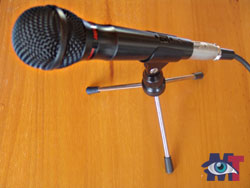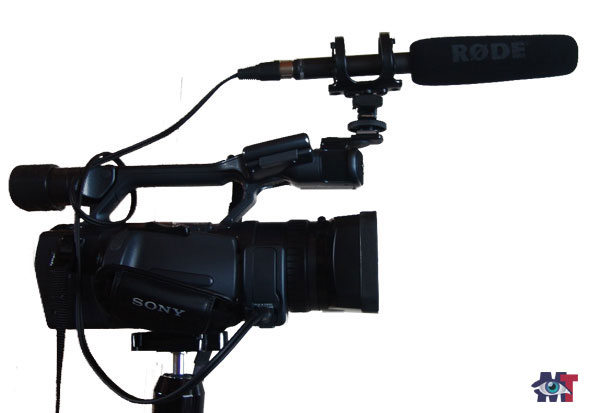 Environmental sounds are often confused with static because, just as static, it produces a disturbing drone in the background. Tthe funny thing is, that we hear those sounds in reality all the time, but we filter them from our minds automatically. If we wouldn’t block out all that irrelevant background noise, we would go totally mad. Yet, when we record audio, we intently listen to everything, therefore we notice the environmental sounds and since we are not used to unfiltered sound, we experience this as a form of static. Whatever we feel about it, we need at least some environmental background noise or we get an unnatural sounding audio.
Environmental sounds are often confused with static because, just as static, it produces a disturbing drone in the background. Tthe funny thing is, that we hear those sounds in reality all the time, but we filter them from our minds automatically. If we wouldn’t block out all that irrelevant background noise, we would go totally mad. Yet, when we record audio, we intently listen to everything, therefore we notice the environmental sounds and since we are not used to unfiltered sound, we experience this as a form of static. Whatever we feel about it, we need at least some environmental background noise or we get an unnatural sounding audio.
For instance, the easiest thing is to sit in a soundproof room and record from there, but then(depending on your audience) your audios may be experienced as too professional or fabricated. The key in good audio is to keep just enough environmental background noise so that it sounds natural without attracting attention.
Noise reducing software filters in post production can help if you use it sparingly. But you best begin with reducing the sound in the environment itself. That way, you might be able to avoid post production, which is always a good thing.
There are two major environmental sound sources:
- Interior sound produced by various sources within your house. You can control these yourself to a large extend.
- Exterior sound from neighbors, street, air and far away traffic. Hard to control, but there are reducing factors.
Let’s begin with the interior environment:
Possible interior sounds and how to reduce them:
- If you have a noisy computer, throw a blanket over it during recording, but don’t leave it there for hours or it may overheat.
- If the fan of your laptop is whizzing like mad, there is not much you can do but wait until it stops, because the sound is prominent and it is a bad idea to cover the ventilation grills, which would cause the laptop to overheat itself within minutes.
- If possible, turn external hard drives off when they make noise.
- Turn off the refrigerator. It may suddenly start spinning while you are recording and the sound can be prominent.
- Turn off any air ventilators or air conditioning during recording, unless it is unsafe to do so.
- Turn off the speakers on your computer, they will create a disturbing echo in your mic.
- Close windows and doors to reduce sound coming from the exterior.
- Unplug phones and turn off TV, radio and mobiles during recording. A friend might call you at the wrong moment.
Leave the fire – and/or burglar alarm on. Trust me, recording sound will be the least on your mind when they go off. 🙂
Possible exterior sounds and how to reduce them:

- If you live in a noisy area (yelling children, hooting cars, etc…), double glazing reduces background noise considerably. Covering the walls with a bunch of card board egg plateaus is an additional way to block exterior sound to a certain extend and on top of that, it will reduce echo in your room.
- If you do all the walls in the room, you might get a very dry sound, which is not desirable because it sounds as if you are sitting in a cellar.
- You need to find out when is the best time to record. There is always a moment in the day when sound dies down.
- If it is too bad, think about renting a small room somewhere in a quite area, it will also help you to concentrate in a space where you have nothing else but the equipment you need.
- Simply redo parts of your audio where heavy lorries or airplanes pass by, because there is no way you can block out sounds like that, unless you rent a sound studio for a couple of hours. You can get them for as low as $60 per hour.
 The next level to reduce natural sounds is to use specialized microphones.
The next level to reduce natural sounds is to use specialized microphones.
There are omni-directional microphones and directional mics (shotgun mics).
Omni-directional mics will pick up nearly everything while shotgun mics reduce sound coming from behind. This will be explained in detail next week.
Read also How to reduce static in my audios.

